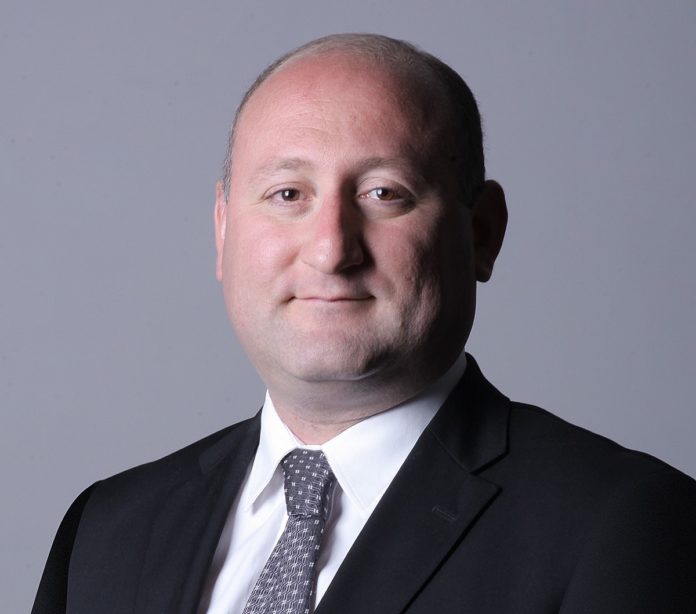In my latest article I analyzed the response of the US media to the ethnic cleansing of Armenians in Artsakh. To have the full picture of the situation, I think there is a need to also dwell on the response from the US think tanks that have covered this issue.
The crucial and first point of this study is to identify how US think tanks have defined what happened in Artsakh in September during the exodus of Armenians. The Council on Foreign relations noted that the ethnic Armenian population “is experiencing ethnic cleansing at warp speed.” Carnegie Endowment also indicated that Azerbaijan’s military operation against ethnic Armenians resulted in “ethnic cleansing.” However, in saying this the think tank referred to Armenian sources and did not risk directly calling a spade a spade. On the other hand, the Council on Foreign Relations warned about the crime of genocide against ethnic Armenians in Nagorno Karabakh by citing the words of the former International Criminal Court Chief Prosecutor Luis Moreno Ocampo and some international aid groups indicating the facts that Azerbaijan was “using starvation as ‘an invisible genocide weapon.’”
The other most common point that was expressed by a number of US think tanks was the idea of increased Western or international involvement in the region in connection with Armenia and Azerbaijan and for the prevention of future aggression. One of the extensive analyses of this issue was provided in the article of the Council on Foreign Relations. First, the think tank stressed that the “United Nations and influential actors such as the United States, Turkey, and the European Union should be pressing Azerbaijan to prevent ethnic cleansing and its incitement against Armenian” in all diplomatic exchanges with Azerbaijan. Second, it proposed the deployment of OSCE or UN monitors under a new mandate to prevent cross-border movements, which would also imply the “withdrawal of Azerbaijani forces from the Armenian territory that they occupied in 2021 and 2022.” Third, the article suggested that the Council of Europe should explore “a truth and reconciliation commission” between the two countries.
The involvement of international actors was also highlighted by the German Marshall Fund of the United States which came up with a vague statement that “it is essential that the international community, including the United Nations, work collectively to uphold the principles of human rights and prevent further suffering” once Azerbaijan takes control of the area. An appeal for more Western involvement was also stressed by the Center for Strategic and International Studies. One of its articles focused on geopolitical realities on the ground where external actors have now an opportunity to enhance their presence and influence on the region due to Russia’s preoccupation with war in Ukraine. The article highlighted that the change in power dynamics provides “Western policymakers with an opportunity to step up as potential guarantors of longer-term peace and stability in the Caucasus – a title famously claimed by Russia.”
Another key issue that US think tanks have emphasized is the worsening relations between Armenia and Russia. It is noteworthy that they singled out several reasons for that. According to the Carnegie Endowment, one of the reasons is the “anti-Russian” position of the current Prime Minister of Armenia. In its article, Pashinyan was presented as “a long-standing opponent of Armenia’s integration into the Moscow-led Eurasian Economic Union.” Moreover, it portrayed him as the proponent of a “worsening relationship with the Collective Security Treaty Organization (CSTO).” Another reason for this situation mentioned in the article is Russia’s and specifically CSTO’s inaction when Azerbaijan attacked the internationally recognized borders of Armenia. Pashinyan now says “that Russia has acted in bad faith – taking advantage of Armenia’s weakness and seeking to undermine its statehood.” A third reason for the worsening of the bilateral relations between Russia and Armenia is the noncompliance with the guarantees given by President Putin for the safe return of Karabakh Armenians from Armenia and the ensurance of their continued residence in their homeland by the Russian peacekeepers. According to them, now Russia sees Azerbaijan as a more valuable partner and after Russia invaded Ukraine, the Armenian government began to pivot toward the West. According to the German Marshall Fund, “Yerevan has a chance to shape its own future without Russian meddling.”
Some of the think tanks referred to Turkey’s role in the conflict. Prominently, one article published in the Brookings Institute, written by a Turkish author, advocated for bigger Turkish involvement in the negotiations between Armenia and Azerbaijan. First the author argues that the United States can’t do much “other than relying on diplomacy to push for a peace deal to prevent a new war” because Russia is all over this map and it won’t tolerate Armenia seeking US support. According to the author, as counterintuitive as it sounds, “Turkey might be helpful” in peace negotiations between Armenia and Azerbaijan and the United States should test that. The Carnegie Endowment, on the other hand, stressed that a new peace agreement between Armenia and Azerbaijan would lead to the decrease of Russian influence, while Turkey’s influence would increase.









